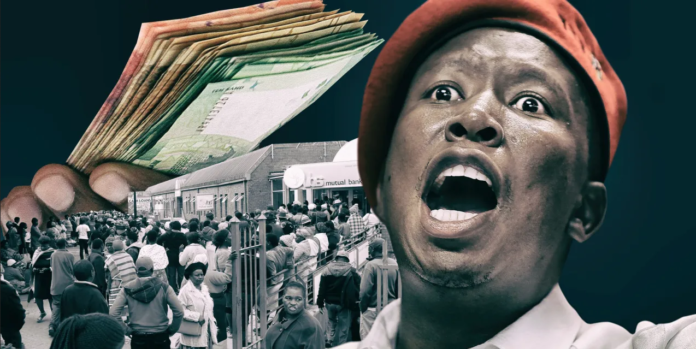The Economic Freedom Fighters (EFF), under the leadership of Julius Malema, operates a complex financial system involving a total of 27 bank accounts.
This intricate network, detailed in a recently released treasurer’s report, reveals the party’s strategies for financial sustainability, particularly in the face of what it describes as a boycott by the South African capitalist establishment.
Maotwe's report explains that the 27 accounts are strategically allocated to manage various aspects of the party's operations. These include dedicated accounts for party levies, merchandise sales, membership fees, payroll, and general operational expenses. This diversified approach allows for efficient tracking and management of the party's finances. The report specifically mentions a main account held with Standard Bank.
The EFF's financial resilience, according to the report, stems from a multi-pronged approach. Government allocations from parliamentary and provincial legislature sources form a significant portion of their income. The Independent Electoral Commission (IEC) also contributes substantially. However, the party actively supplements this institutional funding through other means.
Maotwe’s report states: “The organisation’s funding is primarily sourced from parliamentary and provincial legislature allocations. With the IEC being another significant contributor. In addition to the institutional funding, the organisation generates income through party levies, merchandise sales and membership joining fees and donations.”
This emphasis on multiple income streams reflects a conscious effort towards self-reliance and a reduction in dependence on potentially influential corporate donors. The report highlights this commitment to ideological independence, stating: “These funding streams reflect the organisation’s commitment to self-reliance, minimising dependence on corporate sources that might influence the revolutionary ideas.”
Beyond the numerous bank accounts, the EFF's financial strategy also includes robust asset management. This encompasses both movable and immovable assets, with a significant investment in property. The party's head office, situated on Ghandi Square in Johannesburg's city centre, forms a key part of its asset portfolio. Furthermore, the party owns a fleet of vehicles, including the sound-system equipped trucks and bakkies used extensively in election campaigns and mass mobilisation events.
Maotwe detailed this in her report: “In addition to managing office spaces, the TGO (treasurer-general office) has also overseen the maintenance and management of the EFF’s fleet of vehicles. These include the mobilisation bakkies and trucks used for rallies and other mass mobilisation activities.”
The party's ambition extends beyond its urban base. The report reveals that the EFF has acquired a 177-hectare farm in Magaliesburg, earmarked for the construction of the Winnie Madikizela Comprehensive School. This significant land acquisition further demonstrates the party's long-term investment strategy and commitment to its social objectives.
Maotwe wrote: “The TGO facilitated the acquisition of a 177 hectares farm in Magaliesburg. It is for the sole purpose of building the Winnie Madikizela Comprehensive School. This… further extends the EFF’s asset management portfolio.”
However, the report also acknowledges the financial challenges posed by the Political Party Funding Act. Maotwe notes that the act has necessitated creative fundraising strategies and stringent cost-cutting measures to maintain operational effectiveness. The party has had to find innovative ways to generate income, without compromising its activities. The introduction of the act, according to the report, has resulted in a reduction in funds available to the party.
One notable fundraising initiative highlighted in the report is the sale of EFF merchandise. The report states: “The sale of merchandise has emerged as one of the most crucial fundraising strategies for the EFF. This especially in light of the Political Party Funding Act, which limits the reliance on corporate and large private donations. To enhance merchandise sales, the TGO engaged various service providers and developed an online store. This made it easier for supporters to purchase EFF-branded items.”
This strategic move leverages the party's strong brand recognition and supporter base to generate revenue.
Further demonstrating their innovative approach to fundraising, the EFF capitalised on the popularity of their 10th-anniversary anthem, "Vuma Kamnandi," by making it available as a caller tune for MTN users at a cost of R1 per week. This initiative provides a recurring income stream directly linked to the party's brand and its supporters' engagement.










